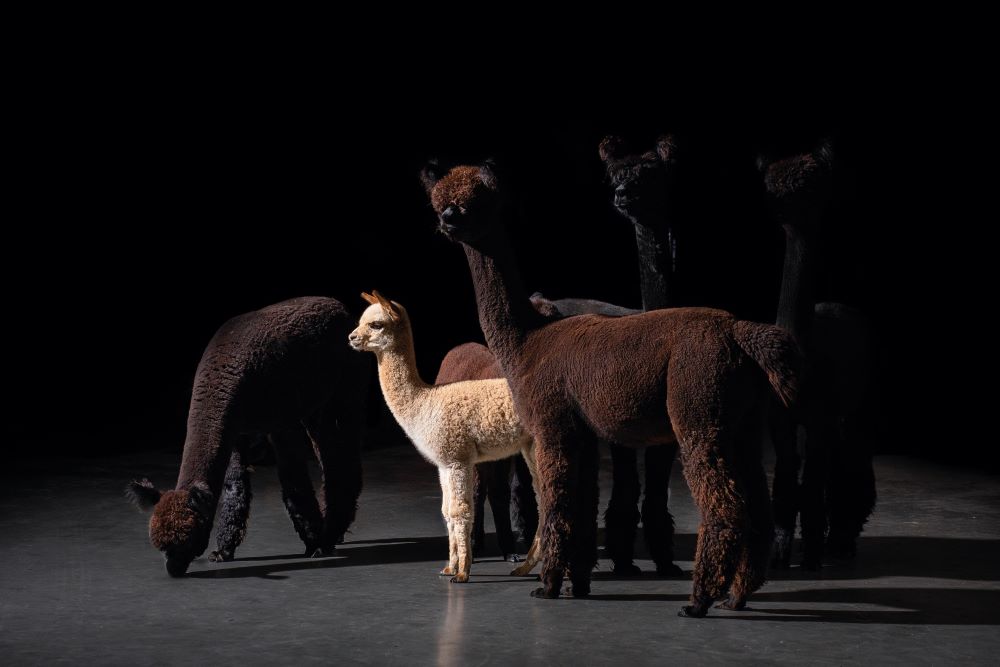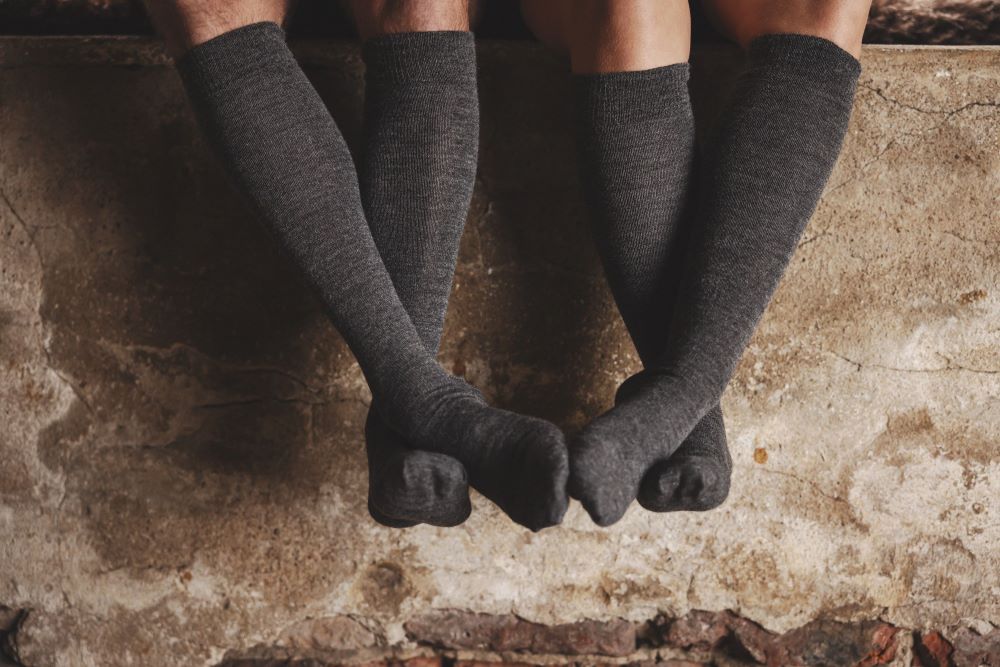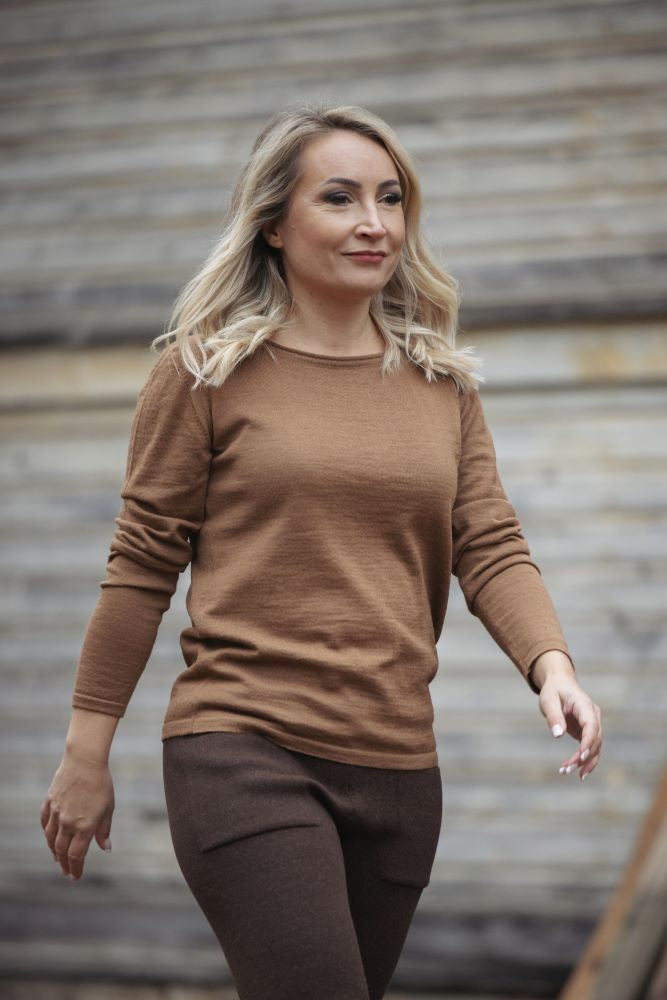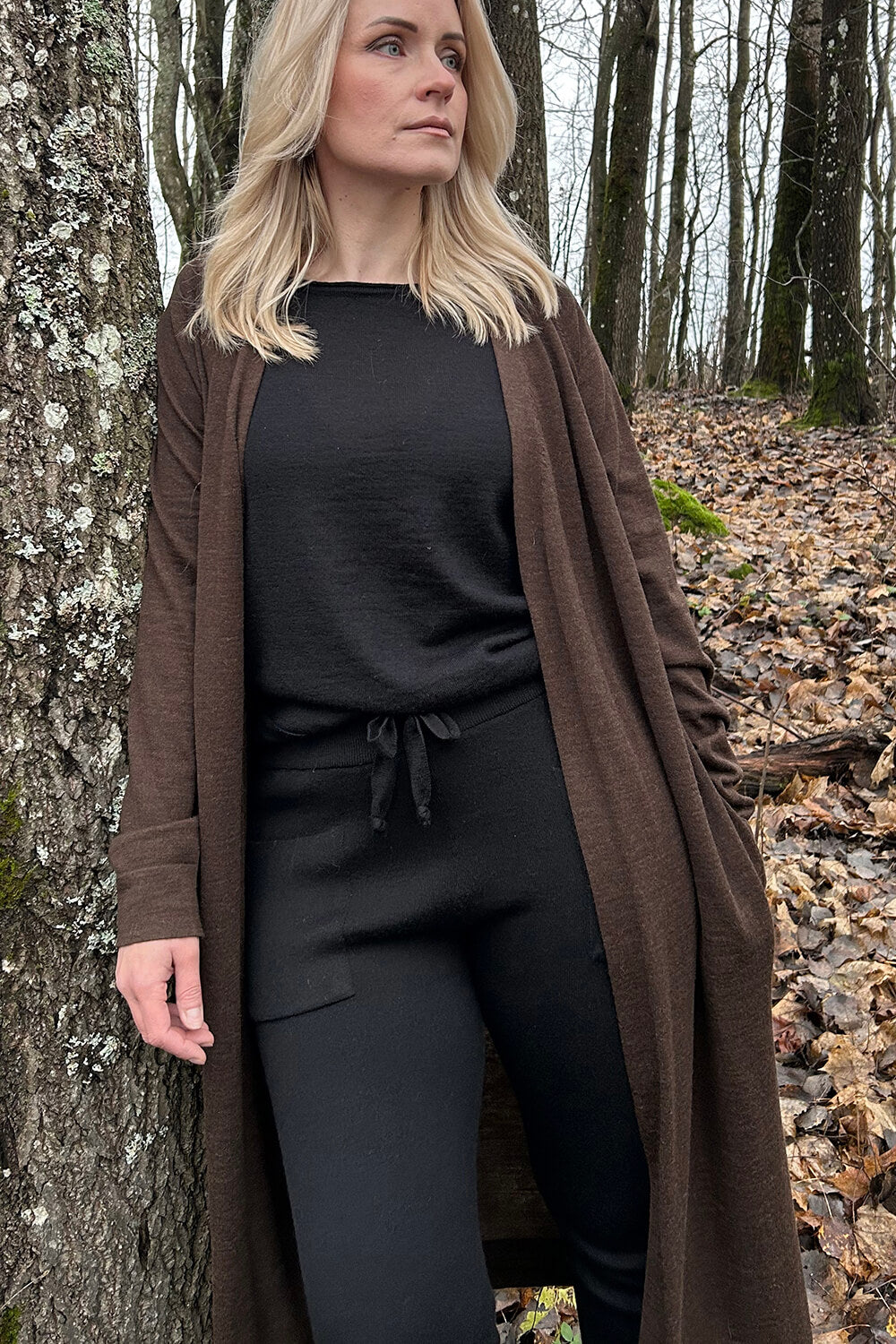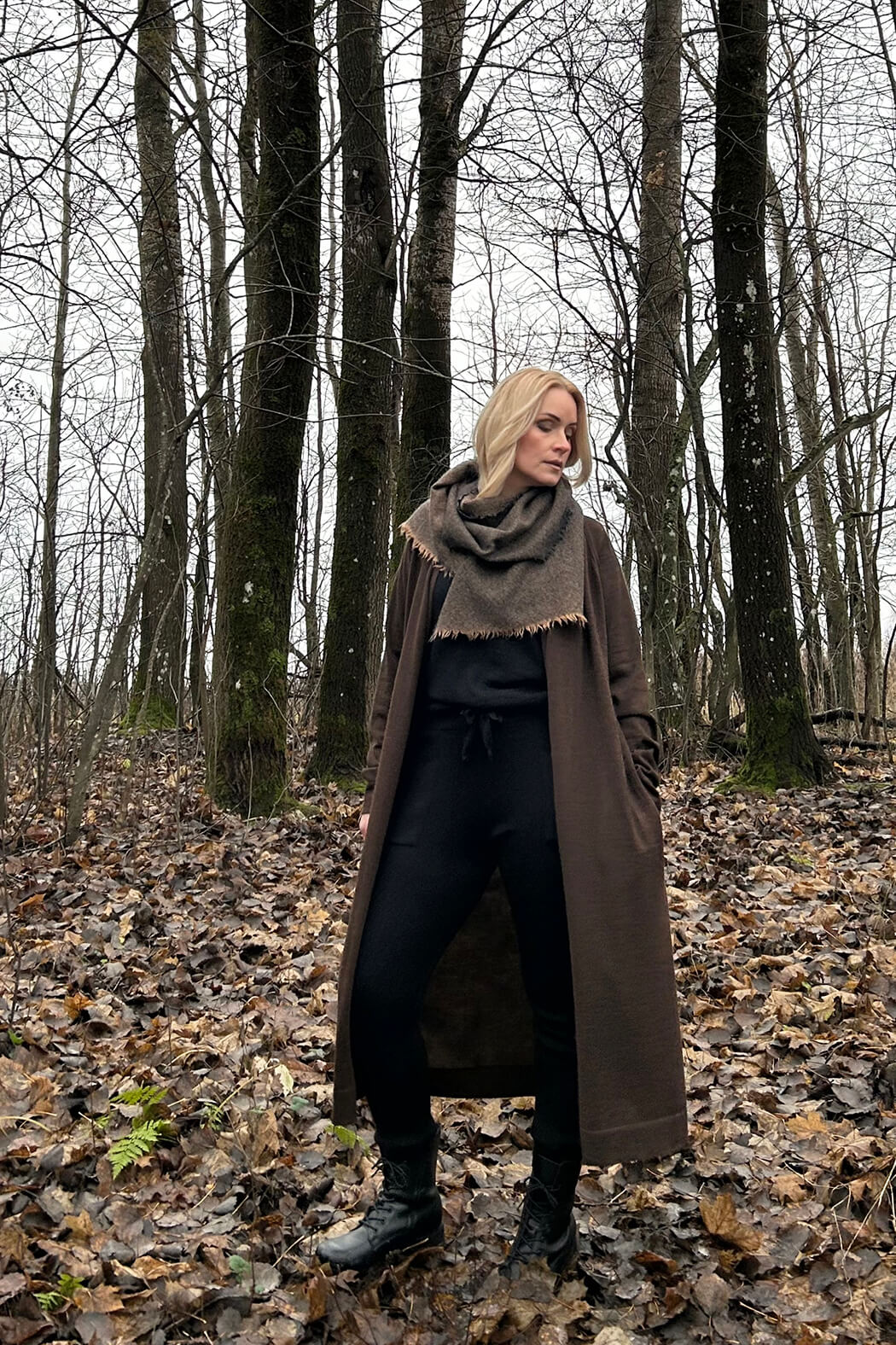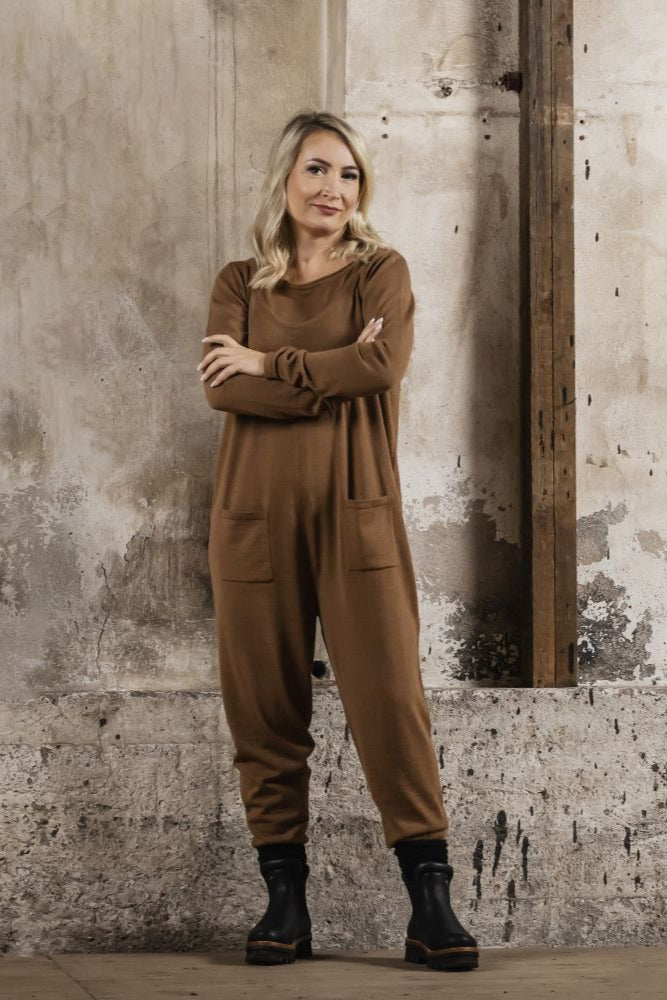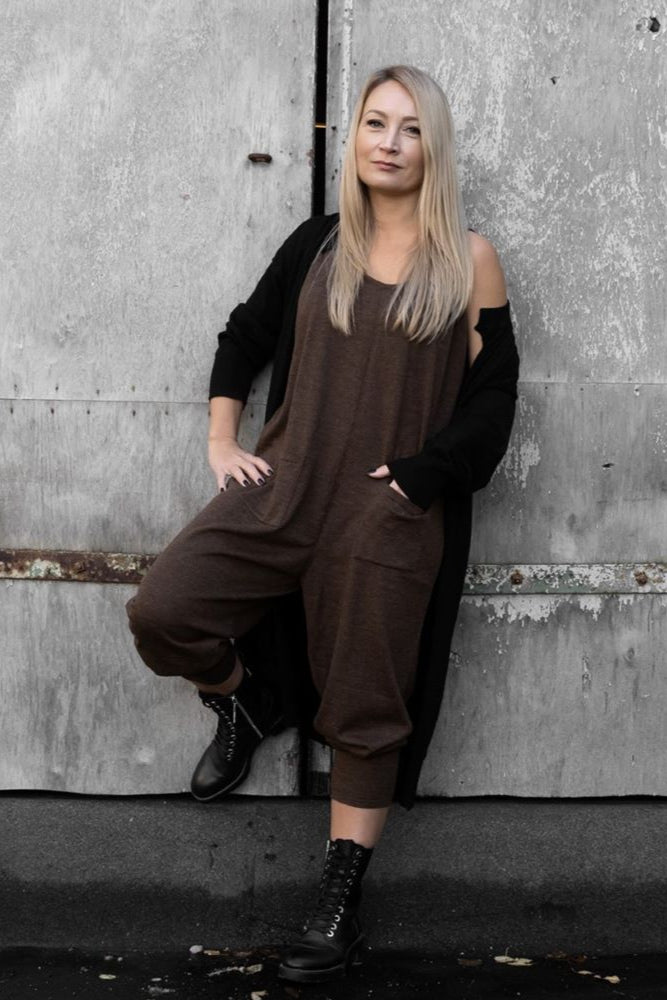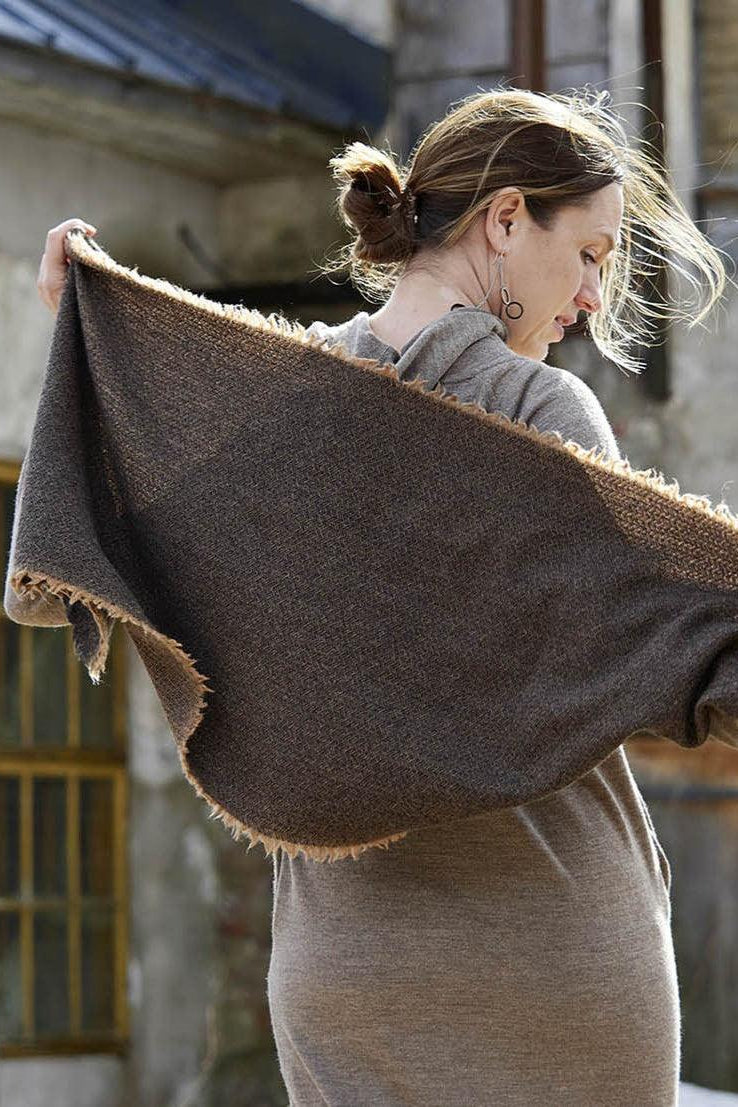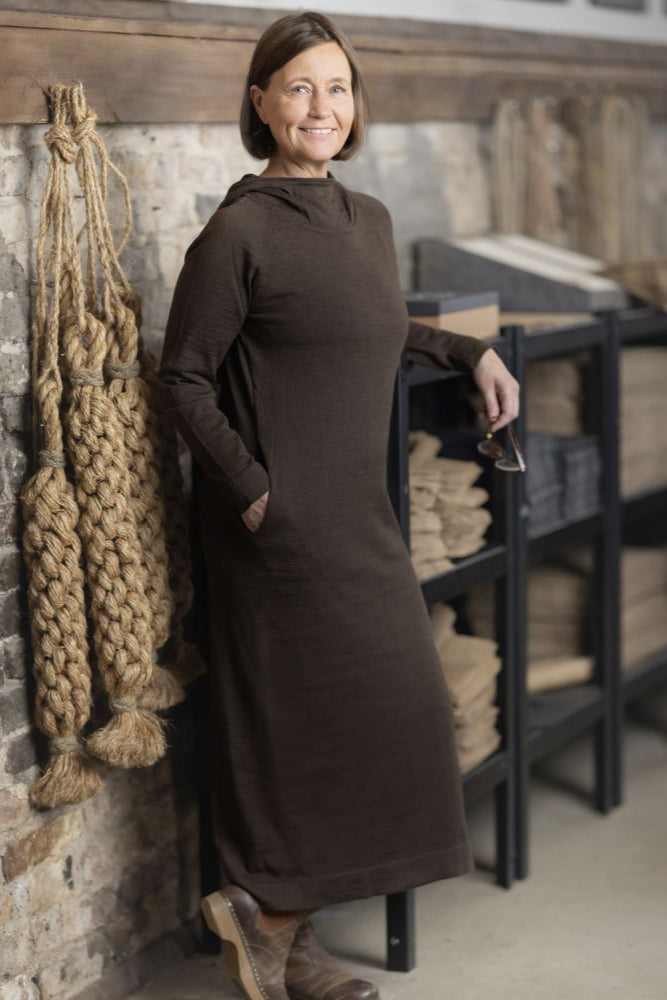Merino wool vs. Alpaca Royal
How does a Royal quality alpaca product compare to a merino wool product?
Alpaca and Merino are both natural fibers and top-quality materials that are rapidly conquering the world. The advantage of alpaca wool (Alpaca Royal) is that the fine alpaca fibers feel softer against the skin and are noticeably lighter in weight. This is precisely why garments made from Royal-grade (≤ 18 µm) alpaca have a luxurious feel.

Image 1. Alpacas at Tienda Molino's farm in the Netherlands

Image 2. Merino wool sheep in Australia
Is alpaca wool warmer than Merino wool? Yes
All wool fibers work well as insulation. Small air pockets remain between the fibers. Your body's heat warms the air in the air pockets, making the wool knit feel warm.
The difference between merino wool and alpaca wool lies in the fiber structure. Thanks to the fiber structure, alpaca wool naturally regulates temperature. An alpaca knit may feel cool to the touch at first. But when you put on an alpaca sweater, the air pockets warm up quickly and protect you from the cold. This also works the other way around, meaning it prevents you from overheating in warm weather.
 Figure 3. Close-up of alpaca wool. The fiber structure keeps the alpaca warm in the cold mountains of Peru. (Photo: International Alpaca Association)
Figure 3. Close-up of alpaca wool. The fiber structure keeps the alpaca warm in the cold mountains of Peru. (Photo: International Alpaca Association)
Is alpaca wool itchier than Merino wool? Yes and No
Itching cannot be generalized. It entirely depends on the quality of the fiber. When speaking generally about alpaca, it can be quite itchy, as can other wool fibers, especially sheep wool fibers.
Knitwear made from Royal-grade (≤ 18 µm) alpaca fiber (Ruukki Spinning Mill's Alpaca Royal) does not feel prickly against the skin. Therefore, even people who find merino wool products prickly can usually wear Alpaca Royal knitwear directly on bare skin.
Factors affecting the softness/prickliness of wool fibers:
1. Lanolin content
Lanolin is a wax naturally found in sheep's wool, produced by the sheep's sebaceous glands. It acts as a protective barrier and moisturizer. Although it is used in some skincare products, it can be an allergenic substance for some people. Unlike merino, alpaca wool's moisture resistance is naturally high, which is why it does not need lanolin to keep its wool protected. Without lanolin, alpaca wool also attracts fewer bacteria and dust, making alpaca wool hypoallergenic and antibacterial.
2. Fiber thickness
Not all alpaca wool is equally soft. The same applies to merino wool. The thickness of the fiber can determine whether it feels prickly or soft against the skin. Fibers with a large diameter feel coarse, while very fine fibers, with a diameter of less than 20 microns, feel soft against the skin (cf. Alpaca royal ≤ 18 µm vs. Baby Alpaca ≤ 22 µm).
3. Smoothness of fibers
Wool fibers have microscopic scales that protrude from the surface of the fiber and cause a prickly sensation. The smaller and more even the scales are, the smoother the fiber is.
The scales of alpaca fibers are small and lie flat against the surface of the fiber, so high-quality alpaca wool (Alpaca Royal) does not cause itching. The overlapping scales of merino are protruding and very visible. The itching caused by this can be reduced by filling these gaps with chemical treatment.
The merino wool used in clothing is generally chemically treated to remove lanolin and the scales of the fibers (Chlorine-Hercosett, Superwash, Ecowash), which is why it feels much softer and less itchy than untreated sheep's wool. However, the treatment is toxic and releases microplastics into the environment during all stages of production as well as during consumer use, wearing, and washing. High-quality alpaca wool, on the other hand, does not require any special treatment: it is naturally soft, which makes it more pleasant on the skin.
Is alpaca wool more durable than Merino wool? Yes
Alpaca fiber is very flexible and withstands more pressure and tension than merino wool. Studies show that the tensile strength of alpaca fiber is up to 50N/ktex, allowing the production of thin garments that endure heavy wear. Merino fiber, on the other hand, withstands significantly less pressure, 30-40 N/ktex.
 Image 4. Merino wool fiber under a microscope
Image 4. Merino wool fiber under a microscope
 Image 5. Alpaca wool fiber under a microscope
Image 5. Alpaca wool fiber under a microscope
Is alpaca wool more breathable than Merino wool? Yes
Breathability refers to wool's ability to transfer moisture away from the skin when you sweat. This basic feature fights odors and increases user comfort. Both Merino wool and Alpaca wool effectively absorb moisture and transport it to the outside of your garment, where it evaporates. However, Alpaca wool has been scientifically proven to be superior in breathability compared to other natural fibers and modern technical fibers.
Does alpaca wool have better water resistance than merino wool? Yes
Alpaca wool is especially famous for its water resistance. Alpaca wool absorbs moisture at only 8% of its weight. Merino wool can absorb moisture up to 30% of its weight. This property of alpaca wool makes it a superior insulator and it dries faster than merino wool.
Is an alpaca product a more environmentally friendly choice than a merino product? Yes
The alpaca is an environmentally friendly friend. Alpaca farming is never based on intensive production. Unlike goats and sheep breeds, the alpaca does not destroy vegetation while grazing; on the contrary, it improves the living conditions of the vegetation. Throughout its entire life cycle, the alpaca and products made from alpaca wool use very little water. This super fine fiber is never treated with chemical processes or synthetic methods.
Merino wool undergoes a toxic "superwash" treatment to make it soft, washable, and comfortable. Merino wool is also often blended with other synthetic fibers, such as nylon, to enhance its luxurious feel, which increases environmental microplastic pollution.
Are alpaca products valuable? Yes and No
We believe that the high price of Ruukki Kehräämö's Alpaca Royal knitwear is not expensive, considering that it is the most luxurious wool product family on the market. It is durable, stays in good condition year after year, and is 100% recyclable. Our Alpaca Royal knitwear is definitely worth the investment according to our customers.
Royal quality alpaca fiber (Ruukin Kehräämö's Alpaca Royal) does not itch, is warm, and does not require chemical treatment. Therefore, its natural properties remain unchanged in the final product, and it performs better than merino wool and other types of sheep's wool.
For this reason, Royal grade alpaca fiber is excellently suited as a material for smart business, everyday luxury, outdoor clothing, hiking socks, and even underwear products.
Alpacas have been bred over thousands of years in harsh conditions on high mountain plateaus precisely for their high-quality wool. In ancient times, the use of alpaca wool was reserved only for royalty. Its exponentially fine qualities and vitality have made it the goddess of the knitwear industry. In Ruukki Spinning Mill's online store and shop, you can explore luxury-class alpaca knitwear.

